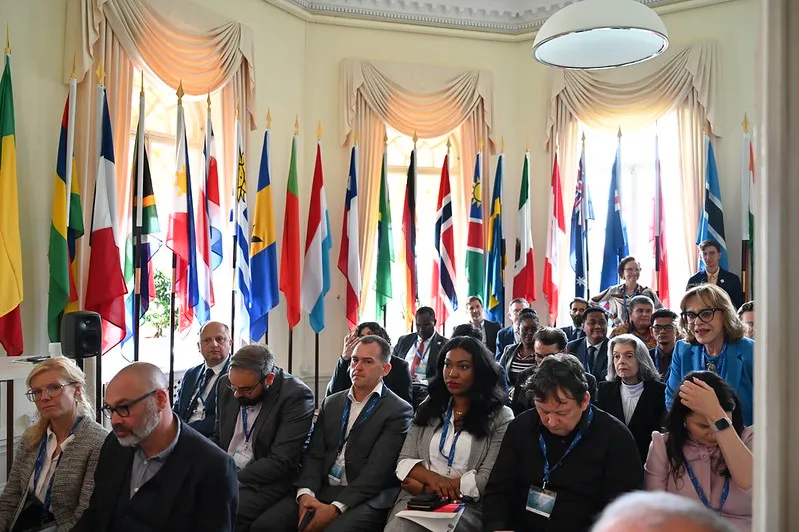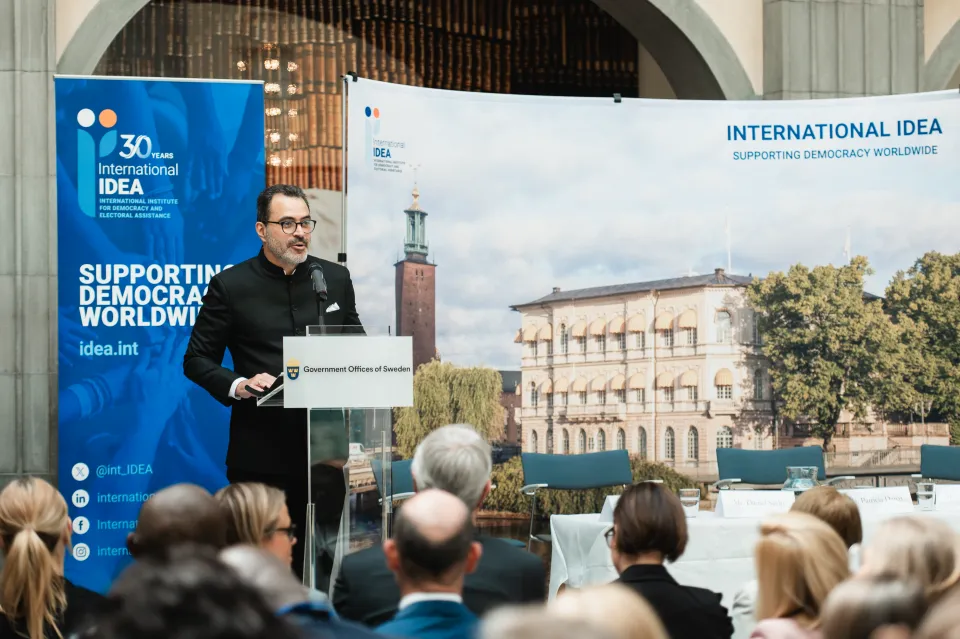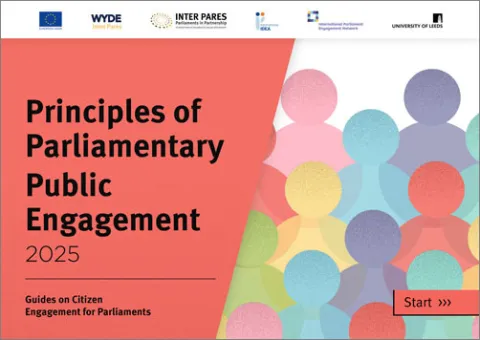The UN has identified Gender-based violence (GBV) against women as one of the most severe human rights violations across the world. Despite the scale and scope of GBV incidents, survivors who seek help through formal or informal justice sector channels, continue to navigate numerous challenges in doing so. According to the Nigeria Demographic and Health Survey 2018 (NDHS), 31 percent of girls and women aged 15-49 years have experienced physical or sexual violence at least once in their lives
Search
Region
Country
Type
To commemorate the 16 Days of Activism 2023, RoLAC and UNDP are organising a Summit to sensitise key members of Parliament to the critical role they play in overseeing the implementation of the VAPP Act and fulfilling their role as budgetary decision-makers who can ensure that allocated resources match the legislative priorities and national policies on violence against persons.
African countries have since 2020 increasingly been facing a rise in the number of constitutional transitions: some of them caused by military and civilian coups, or by popular uprisings, transitions assisted by armed forces, constitutional reform processes after the election of a new President, or within the framework of a new political settlement after conflict.
The practice of recalling elected representatives during their term of office is both topical and controversial within the context of democratic governance across the globe. On the one hand, recall can be an instrument to ensure adequate representation of the elected, but on the other hand, it can be weaponised to undermine democratic representation.
Explore the evolving landscape of digital campaigning and its impact on political finance. This report examines key challenges and opportunities in regulating online fundraising, spending and transparency.
Effective governance of mineral resources is vital to Africa’s sustainable development, with the potential to transform resource wealth into broad-based economic growth. With the right governance frameworks, the continent’s vast mineral endowments can benefit local communities, national economies and global markets. However, many African countries face ongoing challenges related to governance, transparency and the equitable distribution of resource revenues.
Women’s presence in politics is vital for shaping policy outcomes in the economic, social and cultural spheres. Despite progress over the past two decades, women remain under-represented in political leadership in Africa.
Legislatures are vital institutions at the heart of any democracy. They not only enact laws and approve budgets, but also act as representative and deliberative assemblies, and as bodies that scrutinize and oversee the actions of the executive. In order to perform these functions effectively, legislatures need to be organized, in terms of their internal leadership, their committee structures, and the rules by which they transact public business.
The Rule of Law and Anti-Corruption (RoLAC) Programme Phase II, funded by the European Union and implemented by International IDEA, continues to make significant strides in promoting justice sector reforms in Nigeria. One of the focal areas of the programme is enhancing the performance, quality, and oversight of the criminal justice system, particularly in Edo state.
El Programa de Estado de Derecho y Lucha contra la Corrupción (RoLAC II), en colaboración con la Comisión Nacional para Personas con Discapacidad (NCPWD), organizó recientemente un evento de desarrollo de capacidades de dos días destinado a fortalecer la protección jurídica de las personas con discapacidad.
The Rule of Law and Anti-Corruption (RoLAC) Programme, funded by the European Union and implemented by International IDEA, in collaboration with the Edo state government, organised an event on the 22nd of August 2024.
The Rule of Law and Anti-Corruption (RoLAC II) Programme has made significant strides in strengthening Nigeria's criminal justice system by supporting the Federal Ministry of Justice to develop a National Minimum Standards (NMS) for the implementation of the Administration of Criminal Justice Act (ACJA) and corresponding state laws (ACJL). This initiative addresses critical gaps that have emerged in the implementation of the ACJA since its enactment in 2015.
The Rule of Law and Anti-Corruption (RoLAC II) Programme, in collaboration with the National Commission for Persons with Disabilities (NCPWD), recently organised a two-day capacity-building event aimed at strengthening legal protection for persons with disabilities.
The Rule of Law and Anti-Corruption (RoLAC II) Programme, in collaboration with the Fiscal Responsibility Commission (FRC), organised the National Summit of Fiscal Responsibility Agencies, held on the 5th and 6th of September 2024 in Abuja.
The Rule of Law and Anti-Corruption (RoLAC II) Programme, funded by the European Union and implemented by International IDEA, has been at the forefront of promoting non-custodial measures across Nigeria.
The Duty Solicitors Network (DSN), in partnership with the Rule of Law and Anti-Corruption (RoLAC) Programme, facilitated a series of legal aid clinics during the Nigerian Bar Association (NBA) Annual General Conference (AGC) 2024. Held at Tafawa Balewa Square, Lagos, from August 26 to 29, 2024, the initiative aimed to provide free legal advice and services to citizens, particularly informal sector workers such as artisans and traders.
The Nigeria Extractive Industries Transparency Initiative (NEITI) held a five-day retreat for its newly appointed board members at the Marriot Hotel in Ikeja, Lagos State.
Since the advent of Nigeria's 25-year democracy, the Independent National Electoral Commission (INEC) and the National Assembly have reformed election laws and regulations before and after every general election. These amendments are designed to address the flaws experienced in previous elections.
Statement-taking in Nigeria’s detention centres has always been categorised as a plethora of issues. This process should ordinarily serve as the first point of evidence gathering on the route to a fair trial in a matter that requires arraignment.


